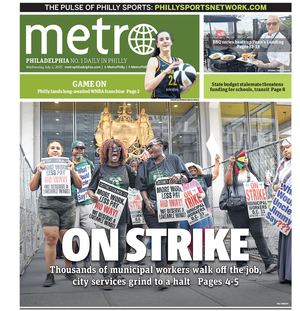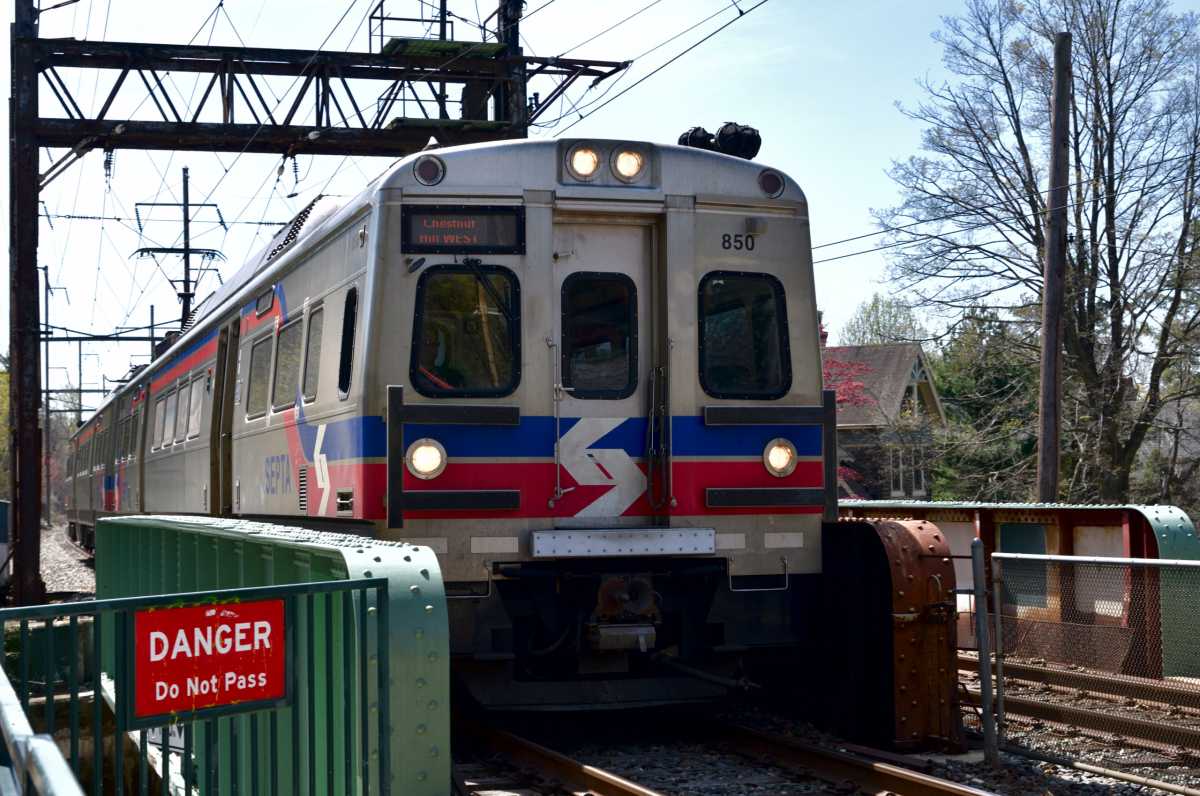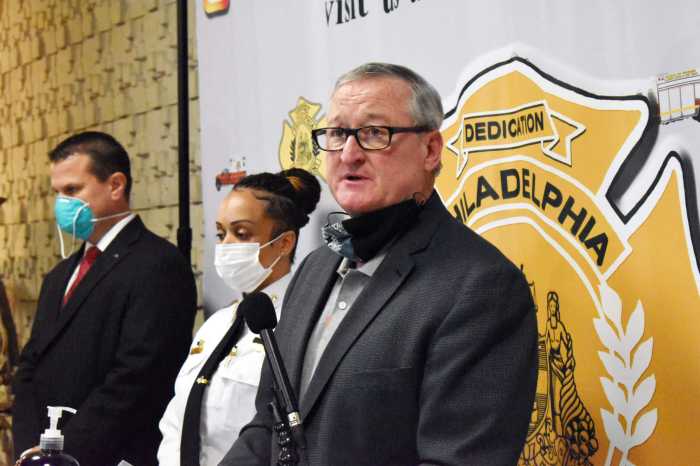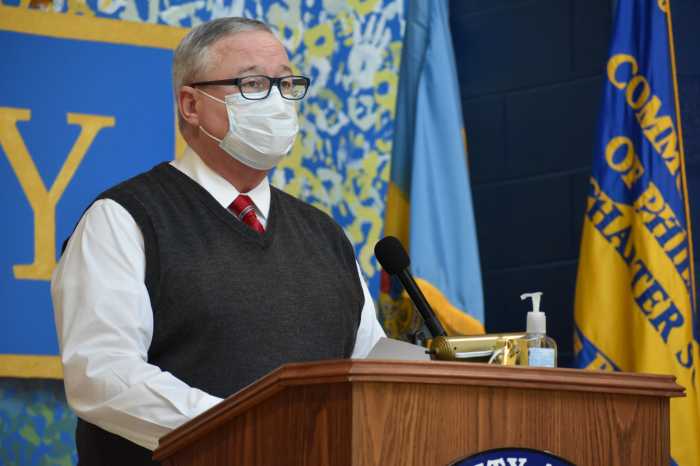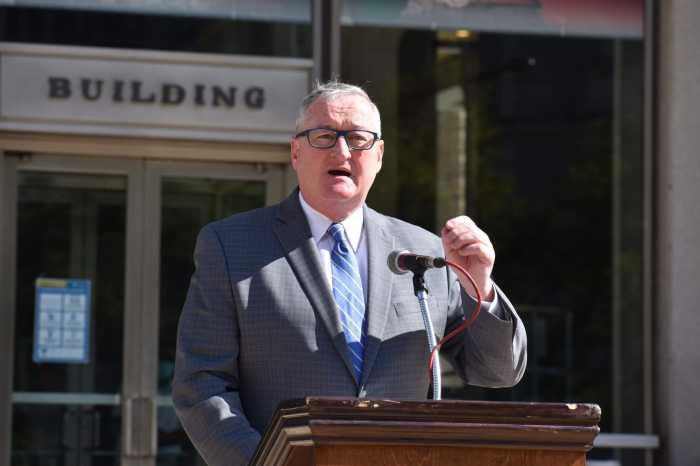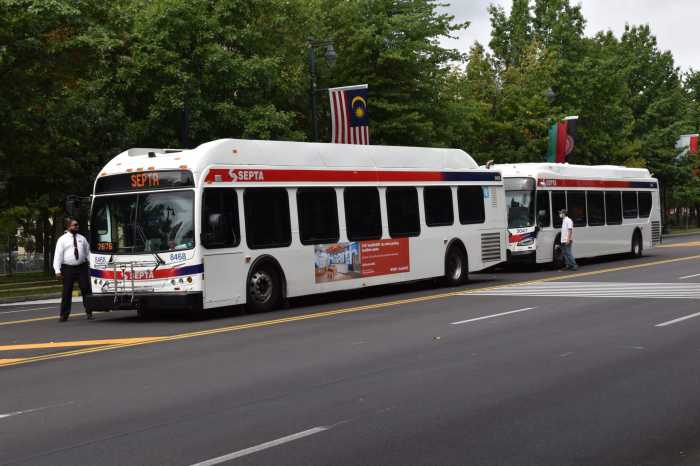Coronavirus relief money will save SEPTA’s budget in the immediate term, but long-term projects to modernize the authority’s trolley system and replace Regional Rail trains are threatened by questions over state funding.
SEPTA receives a significant portion of its infrastructure budget — about $200 million a year — from the Pennsylvania Turnpike Commission, a funding stream that is due to expire in 14 months.
A 2013 state law stipulates that the funding be replaced with vehicle sales tax revenue, which may benefit the authority, as it would be able to borrow against that money, said Andrew Busch, a SEPTA spokesman.
However, the switchover still needs to be codified as part of the state’s budget process. Busch said authority leaders have been in contact with legislators in Harrisburg as well as Gov. Tom Wolf’s administration.
If they don’t act, SEPTA will likely be forced to pull back on some capital projects over the next several months.
“We don’t have a definitive date in the fiscal year where we would have to say, okay, we have to stop here,” Busch told Metro. “We’ll have to keep evaluating it.”
In the longer run, it could mean that some train lines get shortened, with aging bridges becoming unsafe, and less service if vehicles can’t be replaced.
SEPTA says its current capital budget, proposed at $619 million for the next fiscal year, which starts July 1, is already half of what is provided to public transit agencies in Washington, D.C., and Boston.
The authority’s $1.52 billion operating budget proposal, which covers day-to-day activities, boosts service to near pre-pandemic levels and does not include employee layoffs, thanks in large part due to $1.5 billion in federal COVID-19 relief dollars, including $660 million from the most recent package, the American Rescue Plan.
Both budgets still need to be approved by SEPTA’s board, which will hold a vote in June.
There will be no changes to fare prices through at least next summer under the proposed budget.
Last year, the authority implemented fare reductions, eliminating riders’ first transfer, and previously planned hikes to the cost of weekly and monthly passes have been indefinitely delayed.
Any fare increases over the next couple of years would come as part of a new evaluation, according to Busch.
SEPTA plans to eliminate 300 mostly managerial and administrative positions in the next year by not replacing retirees and those who leave for other jobs. It does intend to hire 200 additional cleaners.
Ridership has not recovered since COVID-19 arrived. It’s still down more than 60% compared to pre-pandemic numbers, and, as a result, the authority continues to lose $1 million a day.
Revenue is expected to significantly increase over the next fiscal year, though the authority estimates it will still come in 43% under pre-coronavirus levels.
There’s enough money in the proposed budget to essentially completely restore service to bus, subway and trolley lines, if riders return. Regional Rail, which has experienced the largest ridership drop, could begin running at 80% capacity.
Even if the turnpike funding remained, SEPTA would need more money to complete what its capital program calls the authority’s “projects of significance,” which include the trolley system overhaul and an extension of the Norristown High Speed Line to King of Prussia.
SEPTA plans to devote about $30 million to trolley modernization, which involves replacing vehicles and making the service accessible to people with disabilities, next year and more than $200 million over 12 years.
“This is a tremendous move by SEPTA towards equity by showing its commitment to tens of thousands of working-class riders who rely on trolleys throughout Philadelphia,” said Cameron Adamez, of 5th Square, a political action committee focused on urban issues.
Most Regional Rail trains date from the 1970s, and Market-Frankford Line cars were built in the 1990s, which means the authority will also have to factor in the cost of new vehicles there in the future, Busch said.
Yasha Zarrinkelk, coalition manager at Transit Forward Philly, said he was pleased to see continued investment in the bus network and system accessibility improvement.
“We’re happy to see SEPTA prioritizing the right projects,” he told Metro, adding that he is frightened at the prospect of the drop in state funding.
Public comment sessions on the operating budget will be held May 24 at 11 a.m. and 6 p.m. and May 25 at 10 a.m. and 4 p.m. Similar meetings on the capital program will occur May 26 at 11:30 a.m. and 5 p.m. Go to www.septa.org for more information.
